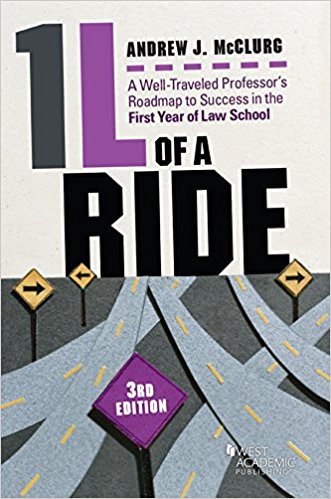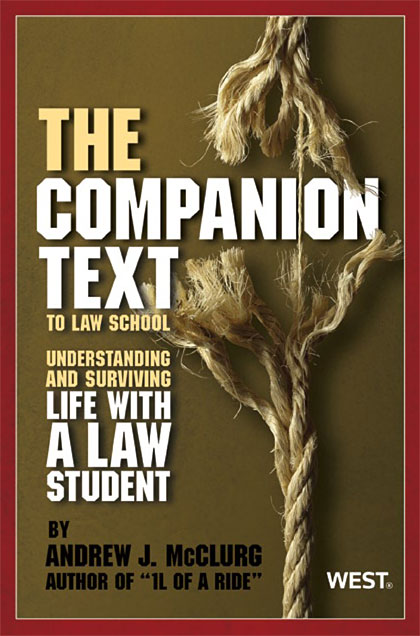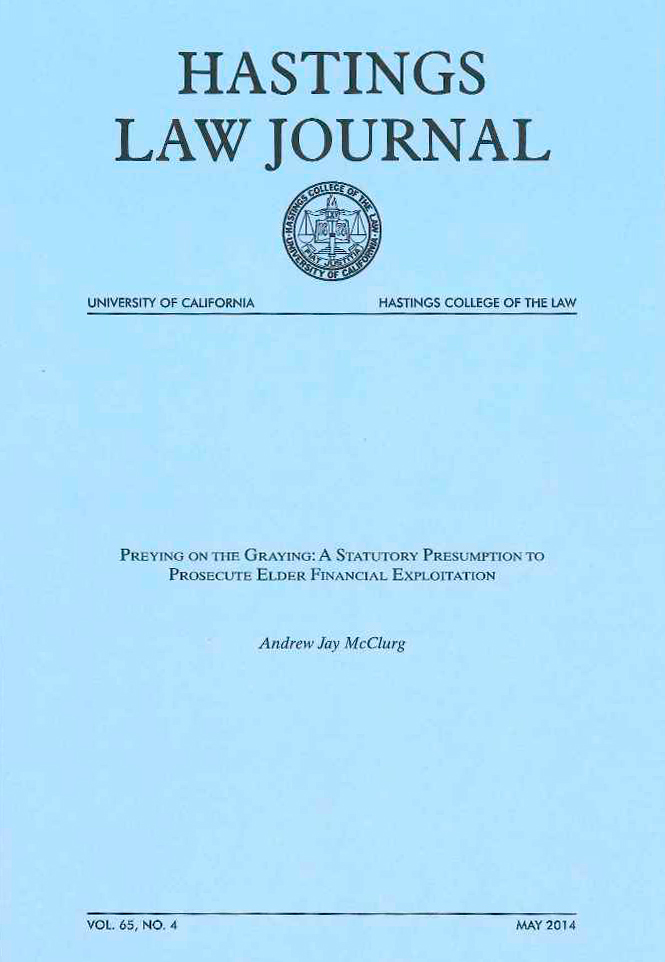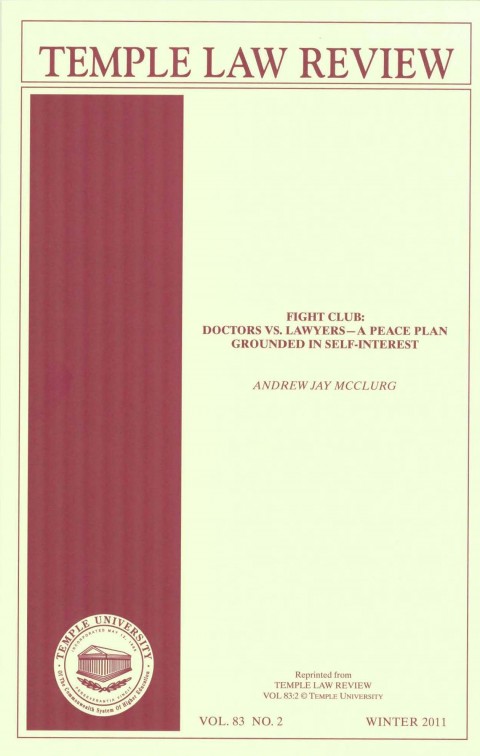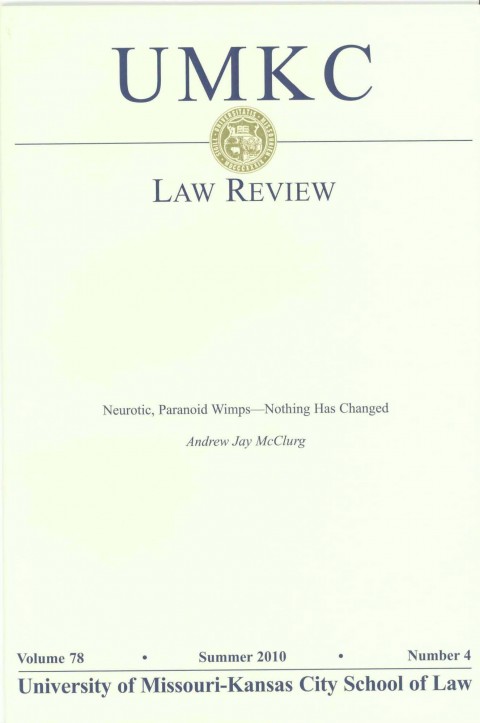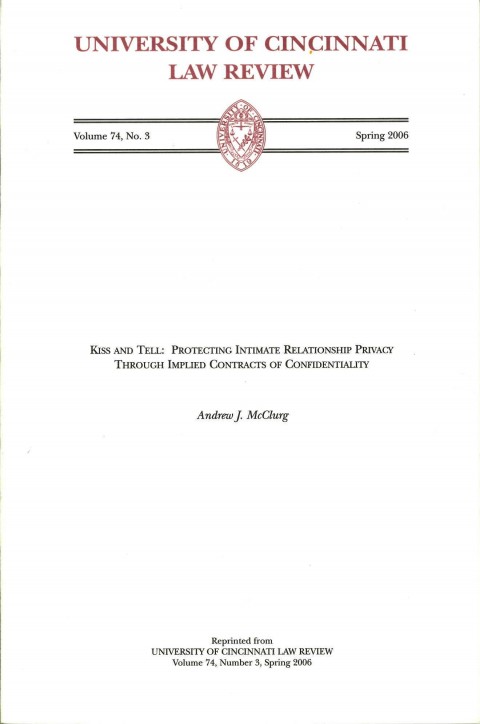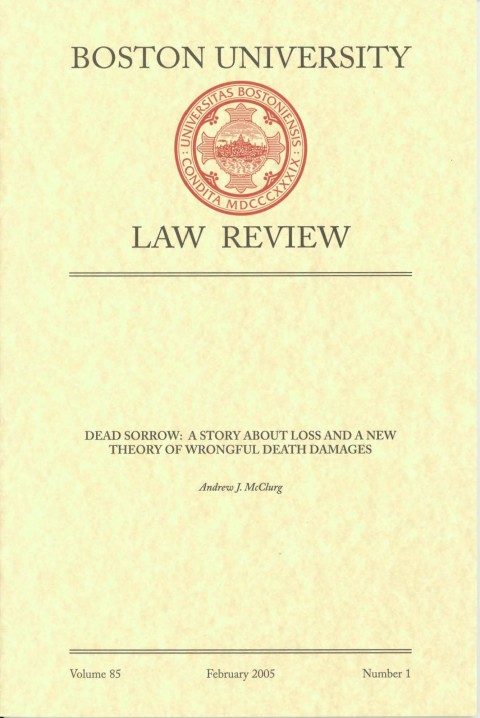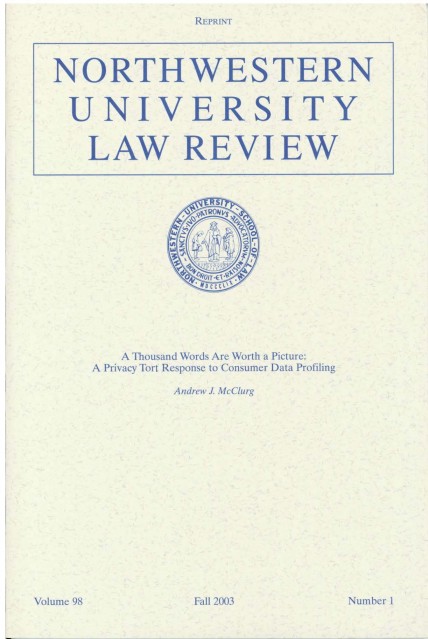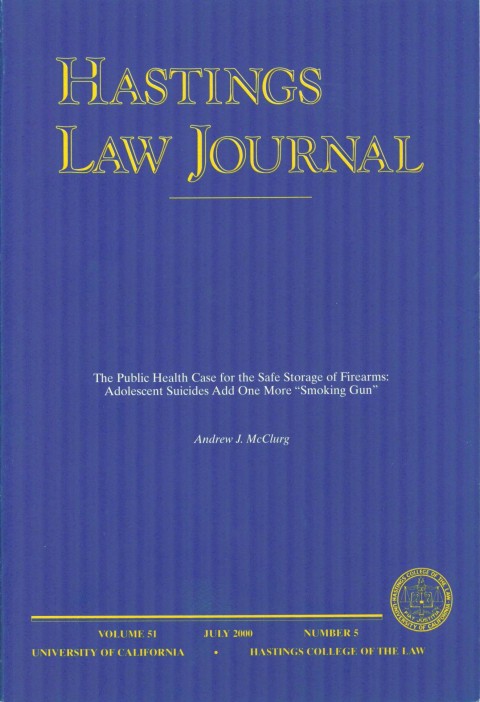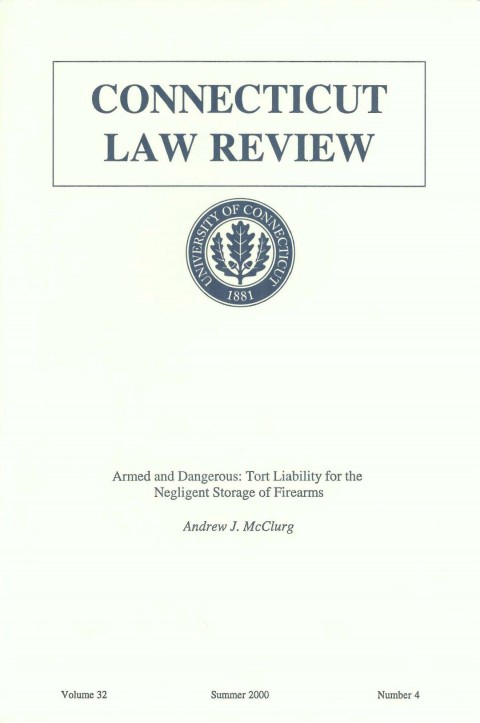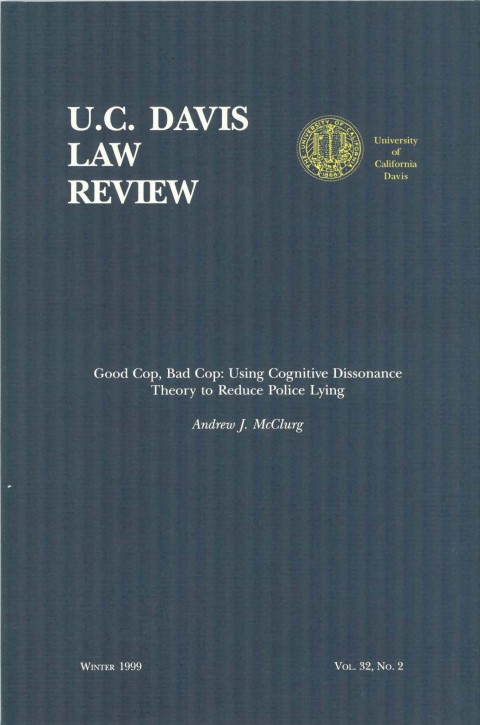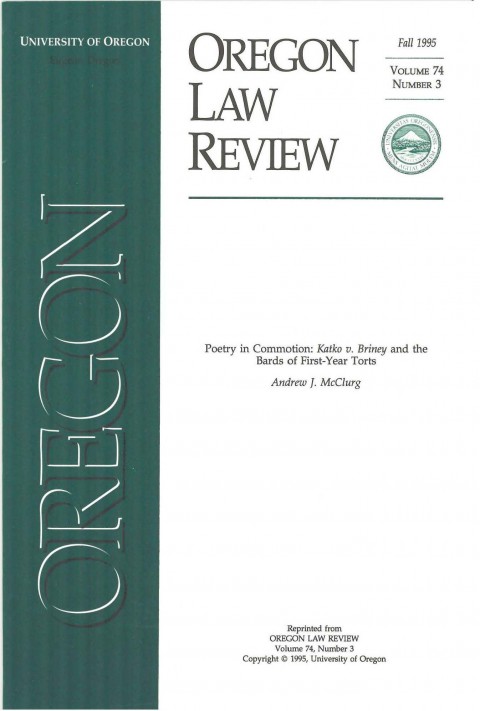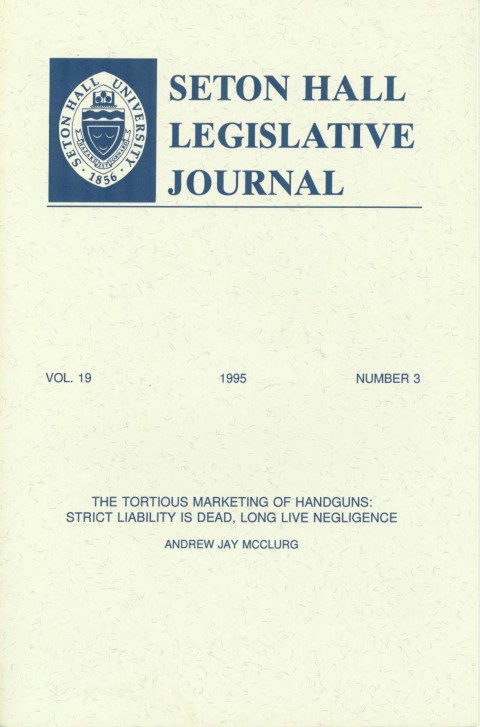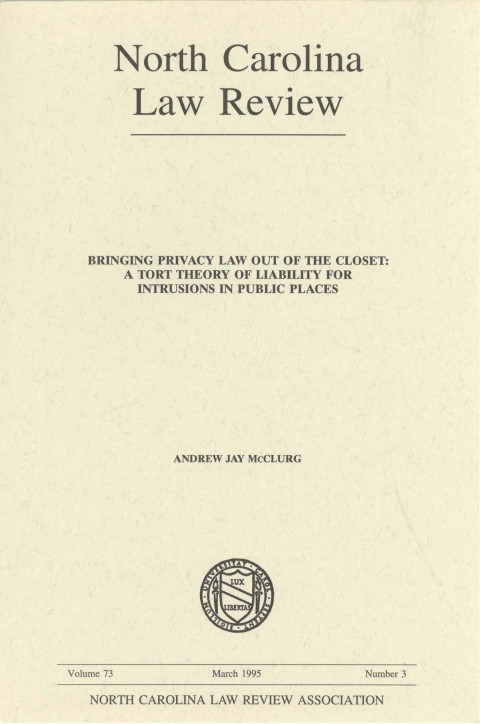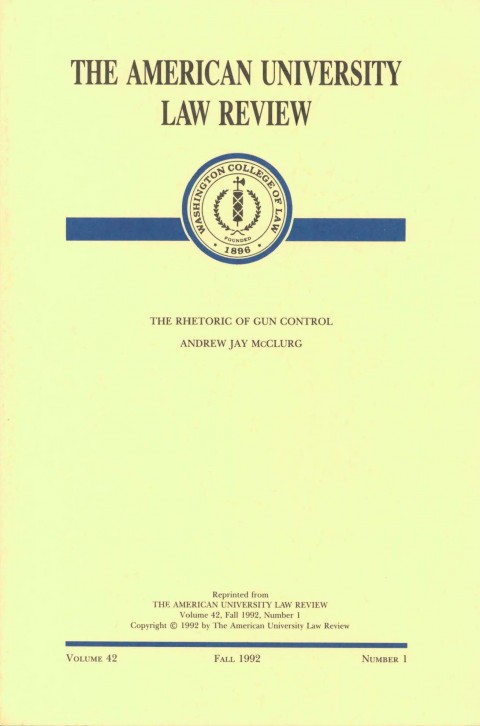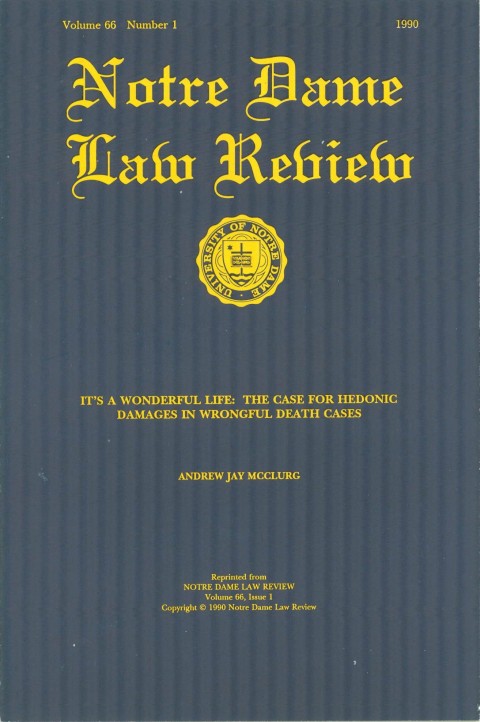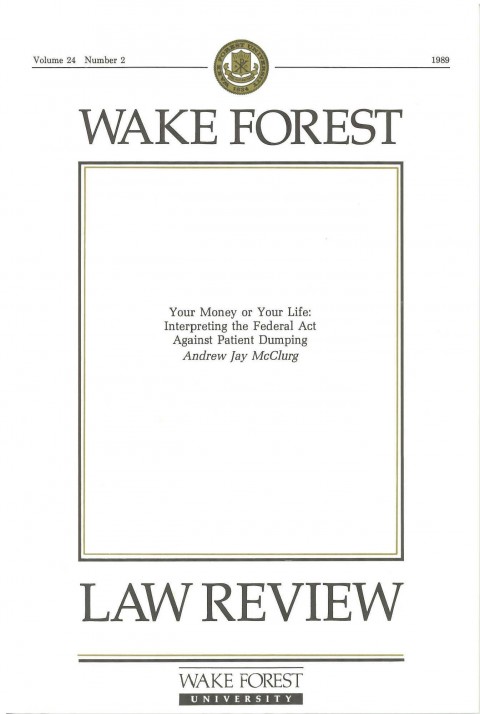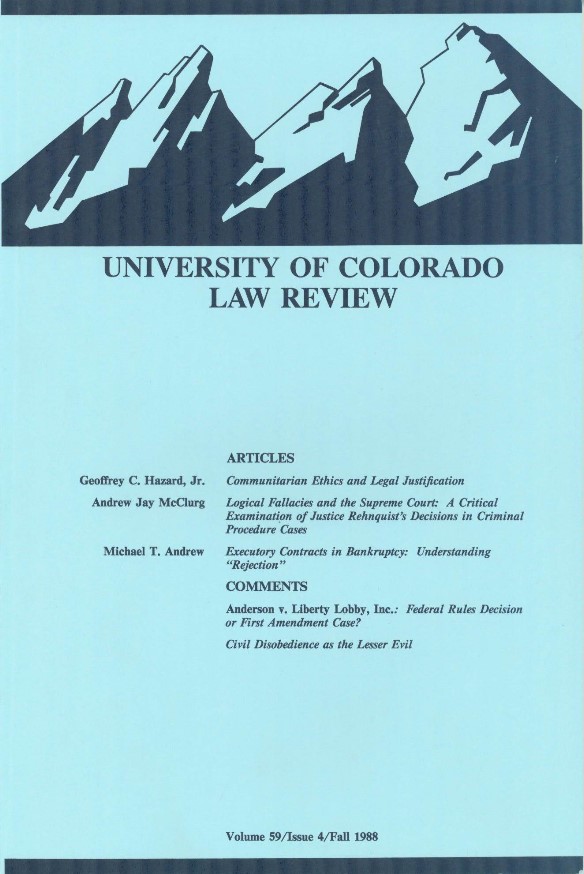January 9th, 2015  Don’t think for a minute that Canadian judges can’t keep up with American judges when it comes to Strange Judicial Opinions. Wild and crazy judicial happenings in Canada are here, here and here. Don’t think for a minute that Canadian judges can’t keep up with American judges when it comes to Strange Judicial Opinions. Wild and crazy judicial happenings in Canada are here, here and here.
Now comes a new hit TV series, I mean, an order in a divorce case, entered by Superior Court Justice Pazaratz, where the court analogized the parties’ ugly divorce to the hit television show, Breaking Bad. Excerpts from the order include:
1. Breaking Bad, meet Breaking Bad Parents.
2. The former is an acclaimed fictional TV show whose title needed a bit of explaining: “BREAKING BAD: A southern U.S. expression for when a good person suddenly loses their moral compass and starts doing bad things”.
3. The latter is a sad reality show playing out in family courts across the country. “BREAKING BAD PARENTS: When smart, loving, caring, sensible mothers and fathers suddenly lose their parental judgment and embark on relentless, nasty litigation; oblivious to the impact on their children”.
4. SPOILER ALERT: The main characters in both of these tragedies end up pretty much the same: Miserable. Financially ruined. And worst of all, hurting the children they claimed they were protecting.
5. To prolong the tortured metaphor only slightly, the “urgent” motion before me might be regarded as this family’s pilot episode. Will these parents sign up for the permanent cast of Breaking Bad Parents? Will they become regulars in our family court building, recognizable by face and disposition? Or will they come to their senses; salvage their lives, dignity (and finances); and give their children the truly priceless gifts of maturity and permission to love.
6. Stay tuned.
[The court proceeds to recount the parties’ inability to work together, accusations and counter-accusations, and their deadlock in trying to reach a custody sharing arrangement. The Court decides on a reasonable arrangement before wrapping things up.]
36. One final comment:
37. I hope I didn’t offend the parties with my Breaking Bad Parents analogy. They’re not bad parents. Yet.
38. Mainly, I was trying to give both parties a sobering warning: Stop!
39. Stop being nasty.
40. Stop jockeying for position.
41. Stop playing hardball.
42. Stop acting like you hate your ex more than you love your children.
All good advice, Justice Pazaratz, but you’ve just ruined the potential for the TV series.
–Coe v. Tope, Case No. 2839/14, Ontario Superior Court of Justice (July 3, 2014). Thanks to whoever sent this along. We lost track of the original email. Let us hear from you!
April 1st, 2012 A pro se litigant in Arkansas appealed a trial court decision granting custody of her child to the biological father and ordering that the child’s birth name be changed. The trial court granted the custody change and ordered the child’s name be changed to “Samuel Charles.” Not a bad name, but why order a change? Personally, I liked the original name: “Weather’By Dot Com Chanel Fourcast.”
For making us laugh out loud, this order gets into the Strange Judicial Opinions Hall of Fame.
Here’s the colloquy in which the perplexed trial judge asked the mother to explain the child’s birth name:
The Court: I simply do not understand why you named this child — his legal name is Weather’By Dot Com Chanel Fourcast Sheppard. Now, before you answer that, Mr. – the plaintiff in this action is a weatherman for a local television station?
Sheppard: Yes.
The Court: Okay. Is that why you named this child the name that you gave the child?
Sheppard: It – it stems from a lot of things.
The Court: Okay. Tell me what they are.
Sheppard: Weather’by — I’ve always heard of Weatherby as a last name and never a first name, so I thought Weatherby would be — and I’m sure you could spell it b-e-e or b-e-a or b-y. Anyway, Weatherby.
The Court: Where did you get the “Dot Com”?
Sheppard: Well, when I worked at NBC, I worked on a Teleprompter computer.
The Court: All right.
Sheppard: All right, and so that’s where the Dot Com [came from]. I just thought it was kind of cute, Dot Com, and then instead of — I really didn’t have a whole lot of names because I had nothing to work with. I don’t know family names. I don’t know any names of the Speir family, and I really had nothing to work with, and I thought “Chanel”? …
The Court: Well, where did you get “Fourcast”?
Sheppard: Fourcast? Instead of F-o-r-e, like your future forecast or your weather forecast, F-o-u, as in my fourth son, my fourth child, Fourcast. It was —
The Court: So his name is Fourcast, F-o-u-r-c-a-s-t?
Sheppard: Yes.
The Court: All right. Now, do you have some objection to him being renamed Samuel Charles?
Sheppard: Yes.
The Court: Why? You think it’s better for his name to be Weather’by Dot Com Chanel —
Sheppard: Well, the —
The Court: Just a minute for the record.
Sheppard: Sorry.
The Court: Chanel Fourcast, spelled F-o-u-r-c-a-s-t? And in response to that question, I want you to think about what he’s going to be — what his life is going to be like when he enters the first grade and has to fill out all [the] paperwork where you fill out — this little kid fills out his last name and his first name and his middle name, okay? So I just want – if your answer to that is yes, you think his name is better today than it would be with Samuel Charles, as his father would like to name him and why. Go ahead.
Sheppard: Yes, I think it’s better this way.
The Court: The way he is now?
Sheppard: Yes. He doesn’t have to use “Dot Com.” I mean, as a grown man, he can use whatever he wants.
The Court: As a grown man, what is his middle name? Dot Com Chanel Fourcast?
Sheppard: He can use Chanel, he can use the letter “C.”
The Court: And when he gives his Birth Certificate — is it on his birth certificate as you’ve stated to the Court? Does his Birth — does this child’s Birth Certificate read “Weather’by Dot com” —
Sheppard: That’s how I filled out the paperwork for his —
The Court: — Chanel Fourcast?
Sheppard: Yes, and for his Social Security card, I filled it out as Weather’by F. Sheppard.
The Court: All right.
The Arkansas court of appeals upheld the trial judge’s ruling based largely on its finding that the birth name could subject the child to embarrassment.
— Sheppard v. Speir, 157 S.W.3d 583, 587–88 (Ark. Ct. App. 2004). Thanks to David Eanes.
February 18th, 2012  Congratulations to the new parents. The Court so orders. In a Kansas federal district court, the defendants’ lawyer asked for a trial continuance because it conflicted with the date on which his wife was having a baby.
The plaintiffs’ lawyers opposed the continuance, which “surprised” the judge. “Irritated” is probably more accurate. Judge Eric Melgren not only granted the motion for continuance, but chastised the objecting lawyers while ordering that the new parents be congratulated:
Defendants seek a brief continuance, noting that one of their counsel …, along with his wife, is expecting their first child due on July 3. Given the proposed length of trial and the famous disregard that newborns (especially first-borns) have for such schedules, and given that the trial is scheduled in Kansas City while the new [baby’s] arrival is scheduled in Dallas, Defendants move this Court for a continuance.
This in itself would not be remarkable, but in reviewing the motion the Court was more than somewhat surprised to read that “Plaintiffs have refused to agree to continue the trial setting and have indicated that they intend to oppose this Motion.”
Well, every party is entitled to file an opposition to a motion, and hoping that perhaps Defendants’ had mis-characterized the vigor of Plaintiffs’ opposition, we have eagerly awaited Plaintiffs’ defense of its opposition. The Memorandum in Opposition arrived yesterday, and it was, sadly, as advertised.
First, Plaintiffs make a lengthy and spirited argument about when Defendants should have known this would happen, even citing a pretrial conference occurring in early November as a time when [Plantiffs’ lawyer] “most certainly” would have known of the due date of his child, and even more astonishingly arguing that “utilizing simple math, the due date for [the] child’s birth would have been known on approximately Oct. 3, or shortly thereafter.”
For reasons of good taste which should be (though, apparently, are not) too obvious to explain, the Court declines to accept Plaintiffs’ invitation to speculate on the time of conception of the … child.
[The plaintiffs also argued that the defendants had five lawyers, presumably implying they could continue with the trial without soon-to-be dad. The court pointedly noted that the plaintiffs also had five lawyers.]
Finally, Plaintiffs argue that surely [Plaintiffs’ lawyer] will have sufficient time to make it from the Kansas City trial to the Dallas birth, even helpfully pointing out the number of daily, non-stop flights between the two cities; and in any event complain of the inconvenience of this late requested continuance.
Certainly this judge is convinced of the importance of federal court, but he has always tried not to confuse what he does with who he is, nor to distort the priorities of his day job with his life’s role. Counsel are encouraged to order their priorities similarly.
Defendants’ Motion is GRANTED. The Ermans are CONGRATULATED.
IT IS SO ORDERED.
Did the judge come down too hard on the plaintiffs’ lawyers for objecting to the continuance? Not knowing the parties or the history of the case, it’s difficult to assess the appropriateness of the judge’s order, but trials involve substantial planning and scheduling. Changing them on short notice can not only delay justice, but be very expensive for the parties.
On the other hand, life does go on outside of cases and having a baby is a pretty big deal. His personal advice that lawyers strive to reach a proper work-life balance is unchallengeable, but easier said than done for practicing litigators.
—Order on Motion to Continue, Jayhawk Capital Management, LLC v. LSB Industries, Inc., Case No. 08-2561-EFM (U.S. Dist. Ct., E.D. Kan., Apr. 12, 2011). Thanks to a judge-friend who prefers anonymity.
January 7th, 2012 A judicial friend from Florida sent along a case of first impression involving a parental rights determination between a birth mother and a biological mother that she calls “a law professor’s dream case.” It does sound a bit like a law school exam question—a very difficult one.
The case involved two women in a committed relationship who wanted to have a child. Ova from one of the women were removed, fertilized by donated sperm, and implanted in the other woman, who then gave birth to the child. Thus, one woman was the biological mother and one was the birth mother, an unusual situation to be sure.
Only the birth mother’s name appeared on the child’s birth certificate. For years, the two women reared their child together but, when the relationship failed, the birth mother, without telling the biological mother, fled to Australia with the child.
The trial court reluctantly ruled that only the birth mother was the legal mother but invited appeal of his decision. The Florida Fifth District Court of Appeal reversed, ruling that both women had parental rights to the child.
My judicial friend pointed out that this is a case begging, and no doubt destined, for scholarly attention by law professors and law students, although Judge Thomas D. Sawaya, writing for the majority, might shiver at the thought.
Judge Sawaya was not impressed that the only authority for the birth mother’s position that only gestational mothers have maternal rights were: law review articles and a Tennessee case that relied solely on a law review article.
Regarding law review articles relied on by the birth mother, the judge commented: “We do not believe that law review articles written by students and professors establish the common law.”
About the Tennessee case, Sawaya said: “The common law does not come from law students and professors who write law review articles, and we hardly think it comes from a decision rendered by a Tennessee court that does nothing more than cite a law review article as the source.”
Hmm, I guess that depends on how one defines “the common law.” The Tennessee case is part of the body of judicial precedent that forms the common law. It might not be persuasive precedent, but isn’t it still part of the common law? And simply because a judicial opinion relies on a law review article doesn’t remove the opinion from the realm of common law.
Courts cite law review articles frequently, including the U.S. Supreme Court, and there are innumerable instances of law review articles–including some written by students–that have turned the tide of the common law. As just one example, the products liability doctrine of market-share liability, first articulated by the California Supreme Court in Sindell v. Abbott Laboratories, was conceived from a student-written Note in the Fordham Law Review.
As an aside, my judge-friend was troubled that the majority’s analysis seemed to treat the child as a piece of property, giving no consideration to the best interests of the child, an issue the concurring opinion also focused on.
—T.M.H. v. D.M.T. , Case No. 5D09-3559 (Fla. 5th DCA, Dec. 23, 2011)
November 28th, 2011  Spouses now have to resort to old-fashioned eavesdropping in Alabama. Think of all the reasons people choose to live in different locales: job opportunities, climate, family ties, economic conditions, the ability to wiretap one’s spouse …
That last one might not have come readily to mind, but a U.S. Eleventh Circuit Court of Appeals judge thinks it could play into some couples’ relocation decisions. Read on:
An Alabama woman sued her former husband under the federal wiretapping act for taping her phone conversations made from within the marital home. The trial court granted summary judgment to the husband on the basis of a 1974 Fifth Circuit case, Simpson v. Simpson, which held that spouses can secretly tape each other’s conversations because of an implied interspousal wiretapping exception to the federal statute.
The Eleventh Circuit initially affirmed the summary judgment, relying on Simpson, but on rehearing en banc, reversed, overruling Simpson and the implied exception. It also ruled that the decision applied retroactively.
In dissent, Chief Judge Edmonson questioned whether it was fair to make the decision retroactive since some privacy-invading spouses might have relied on the exception in choosing to live within the Eleventh Circuit (which encompasses Alabama, Florida and Georgia). Edmonson wrote:
I am not trying to be facetious; but before today, some spouses might have chosen to live in the Eleventh Circuit because they could wiretap their own telephone without being liable under federal law. Even if we think it unlikely that someone would live in our Circuit to avoid liability under federal law for wiretapping their spouse, it is our job to ensure that someone cannot be punished retroactively for doing so, as the act was clearly lawful.
In his concurring opinion, Judge Carnes addressed the Chief Judge’s concern satirically:
I suppose, then, a conversation between a couple sitting around their breakfast table in, oh say, Colorado (the Tenth Circuit having rejected Simpson years ago) might have gone something like this:
Jim: Honey, I’ve been thinking, we ought to move to Alabama.
Liz: But Sweetheart, I thought you liked living in Colorado.
Jim: I do, Sugar, but there’s a problem.
Liz: What’s troubling you, Sweetie?
Jim: Well, Punkin’, Colorado is in the Tenth Circuit, and its federal appeals court has held that if I wiretap your private conversations without your knowledge and consent, I may have to pay you damages if you find out and sue me in federal court. But if we move to Alabama, which is in the Eleventh Circuit, its Simpson decision will allow me to invade your privacy electronically without having to worry about your having a civil claim against me in federal court.
Liz: But Honeybun, doesn’t Alabama’s criminal eavesdropping statute make it a crime to covertly record conversations without the consent of at least one of the parties to the conversation?
Jim: It does, Snookums, but all I’m worried about is the potential civil cause of action in federal court, not having to serve time in the state slammer.
Liz: You’ll look so good in jailhouse stripes, my Love. When do we move?
— Glazner v. Glazner, 347 F.3d 1212, 1228 n.13, 1223 (11th Cir. 2003) (Edmonson, C.J., dissenting, and Carnes, J., concurring). Thanks to Lisa Lin.
November 24th, 2011 According to North Carolina Judge David K. Fox, General Court of Justice, Transylvania County, “Teenaged boys were created to mumble darkly whilst doing yard work to justify their existence on earth and their room and board.”
That’s just one of many pearls offered by Judge Fox in a temporary support order in a divorce case, an order as hilarious as it is skillfully articulated.
The facts are extensive, but basically, the husband, a doctor, was seeking relief from support payments to his ex-wife, who, along with her kids, was living quite well on the ex-hubby’s income while declining to seek substantial work of her own.
The wife had been a nurse, a fact not surprising to Judge Fox, who commented “[t]hat, as predictable as death and taxes, doctors marry nurses for second and subsequent unions.”
Neither the wife nor husband, according to Judge Fox, had managed to adjust their respective lifestyles in light of the doc’s substantially declining income attributable to shifts in the healthcare industry. The result, said Judge Fox, was “an ongoing mathematical economic train wreck.”
Part of the problem was that, “since separation, the Parties have undertaken to continue their relationship based upon the constitution and bylaws of the Jerry Springer Show.” The wife’s grown kids from a prior marriage weren’t helping matters either, causing Judge Fox to remark that “[i]t is a mercy that [the husband’s] children by his prior marriage are in Illinois.”
The comment about teenage boys came in response to the fact that the wife was forking out $250 a month for yard work instead of making her healthy 17-year-old son get off his duff and push a lawnmower.
While Judge Fox’s sympathies seemed to lie with the husband, the doc didn’t escape unscathed. Judge Fox described him as “rotund” and “a vessel of ill health, both actual and potential.”
But good news! The husband had “acquired a reciprocal, apparently romantic, interest in a local female (working in the health-delivery industry, of course),” causing the judge to speculate “that this relationship likely is the primary reason he has begun to address his weight problem with some increase in beneficial exercise, including the muscular effort of pushing aside the dinner plate more frequently.”
The judge granted the husband support relief and everyone else comic relief. This summary doesn’t do justice to Judge Fox’s order. The overall tone, while definitely somewhat sarcastic, is not mean-spirited. He seemed genuinely concerned about the parties’ well-being, but also frustrated by their apparent inability to grasp their economic straits.
— Order in Temporary Support, Bodie v. Bodie, Case No. 08-VVD-334 (N.C. Dist. Ct., July 11, 2006). Thanks to Andrew J. Dolson.
November 24th, 2011 Sometimes you just need to know when to fold ‘em.
In a 1963 divorce case, the wife accused the husband–a dentist–of adultery with several of his patients. The husband vigorously contested the allegations. Fifteen hundred pages of testimony later, the case made it to the New Jersey Superior Court, which had to decide whether the evidence proved adultery.
The husband had creative explanations for every bit of damning evidence. For example, when the wife produced a film she found of the husband inserting a speculum into a nude patient in his office, he said he was conducting medical research. Remember, he’s a dentist.
On another charge, the wife claimed she came into the husband’s office one day to find him having sex on his dental couch with a nude patient identified in the case as “Mrs. G.” The husband denied having sex with Mrs. G. He said he was merely carrying her to the couch because of her sudden loss of consciousness while he was removing a denture. (No explanation as to why she was nude.)
He maintained his denial even in the face of a diary entry he made on the same date with reference to Mrs. G that said “[C]aught!” He explained that this was actually a medical entry meaning that the denture “caught” in Mrs. G’s mouth tissue while he was removing it.
The opinion is jammed with other elaborate, laughable denials that make for some interesting reading.
— Lowenstein v. Lowenstein, 190 A.2d 882 (N.J. Super. Ct. 1963). Thanks to Seymour Margulies.
November 24th, 2011 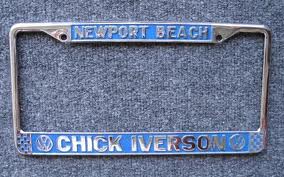 Chick Iverson left his mark in more ways than one. California lawyer Frank Zotter sent in Iverson v. Iverson, a California divorce case in which the trial judge, in Frank’s words, “demonstrates once again the wisdom of the old saying, ‘it’s best to keep your mouth shut and have everyone think you a fool than to open it and leave no doubt.’”
The case involved the validity of a prenuptial agreement and the question of which of the parties had initiated the idea of marriage. The trial judge concluded that surely the wife had pursued the marriage. After all, the judge said, she was “lovely,” but “[h]ad nothing going for her except for her physical attractiveness.” Specifically, she “did not have much of an education, and did not have much of a background in business, and did not have much by way of material wealth.”
The judge simply couldn’t fathom the notion that the husband, Chick Iverson, would have been crazy enough to pursue marriage when “[h]e had just gone through a divorce which cost him a million dollars.” Marriage, the judge said, “would be the last thing on his mind. And why, in heaven’s name, do you buy the cow when you can get the milk free, as we used to say. And, so, he’s getting the milk free. And Cheryl is living with him in his home.”
The Court of Appeals reversed, ordering a new trial before a different judge on the basis that the trial judge’s sexist perceptions of the couple’s relationship made it impossible for the wife to have received a fair trial.
Who the hell was Chick Iverson? The case makes it sounds like he’s a big deal and he must have been because he told John Wayne he wanted The Duke to be best man at the wedding. Internet research discloses Iverson was the first Volkswagen dealer in L.A.
McClurg footnote: A source who requested anonymity sent this interesting follow-up information about the Iverson case:
Chick Iverson and John Wayne were best friends. That’s why John Wayne was the best man at his wedding to Mrs. Iverson. Mr. Iverson has since passed away and is actually buried next to John Wayne.
Chick Iverson owned the first VW dealership in Orange County, not LA. He imported the first Porsches to the west coast after WWII, and established a Volkswagen, Porsche, Rolls Royce, Audi and Chevrolet dealership in Newport Beach in the 60s which was sold in the 80s. It was the largest and best selling Volkswagen dealership in the United States.
Mr. Iverson made a hefty sum selling the wonderful bug to many a hippie. Mr. Iverson and Cheryl Iverson had a bitter divorce that would rival any Dynasty episode. The judge’s screw-up with his comments costs Mr. Iverson close to a million dollars in attorneys’ fees as he was paying for his attorney and Mrs. Iverson’s. Eventually, Mr. Iverson won and the prenuptual agreement was upheld.
Another McClurg footnote: More inside info about the colorful Chick Iverson, courtesy of Carl “Skip” Williams, a friend and former employee:
“Who the hell is Chick Iverson?” I had to laugh when I read that. You’re not from Orange County, CA. Let me add these few choice pieces to the article.
John Wayne and Chick were like Oprah and Gail. John Wayne was the Godfather to Chick’s son, who died at the age of 21 when he took a used Jaguar of the lot and ran off the cliff on his way to Laguna. Chick introduced John Wayne to his wife who worked on his ranch in South America. Chick Iverson was the executor to John Wayne’s Estate and controlled all the money for his children.
Chick Iverson was lucky in business and a genius. He was the son of immigrants. He had the largest cattle ranch in Oregon and the sixth largest in the US. He started as a salesman selling cars, with a high school education. His biggest decision was a fluke. He worked his way from salesman to general manager at a Porsche dealership in Chicago. He then opened up the first Porsche dealership in Orange County. Two years later he went looking to add another brand. His first choice was American Motors, second was Volkswagen.
When he decided to go with American Motors; he invited the representatives over to his house. One made a remark that offended his wife, so he went with Volkswagen and the rest is history.
— In re Marriage of Iverson, 11 Cal. App. 4th 1495, 1499 (1992). Thanks to Frank Zotter.
November 14th, 2011 The classic dilemma of the law. Which is more important: following the rules or dispensing justice? Being faithful to precedent or willing to bend technical legal rules to reach the correct result?
We struggle with these issues from the time we’re first-year law students. Rules won out in ugly fashion in In re Estate of Pavlinko.
Vasil Pavlinko and his wife, Hellen, immigrants who spoke little English, went to a lawyer to have separate wills drawn up. Both wills left their residual interest to the same person: Elias Martin, the brother of Hellen Pavlinko. Unfortunately, when it came time to sign the wills, the wills got mixed up and Vasil and Hellen each signed the other’s will.
After the couple died, Elias Martin—the sole residuary legatee under both wills—offered Vasil’s will for probate. Although conceding that the result was “unfortunate,” the Pennsylvania Supreme Court rejected Martin’s petition because Vasil had mistakenly signed Hellen’s will.
Judge Michael Angelo Musmanno, a Strange Judicial Opinions Hall of Famer for his intelligent prose, dissented, in an impassioned Ode to Screwing Up:
Everyone in this case admits that a mistake was made: an honest, innocent, unambiguous, simple mistake, the innocent, drowsy mistake of a man who sleeps all day and, on awakening, accepts the sunset for the dawn.
Nothing is more common to mankind than mistakes. Volumes, even libraries have been written on mistakes: Mistakes of law and mistakes of fact. In every phase of life, mistakes occur and there are but few people who will not attempt to lend a helping hand to the person who mistakes a step for a landing and falls, or the one who mistakes a nut for a grape and chokes, or the one who steps through a glass so clear that he does not see it. This Court, however, says that it can do nothing for the victim of the mistake in this case, a mistake which was caused through no fault of his own, nor of his intended benefactors.
… I know that the law is founded on precedent and in many ways we are bound by the dead hand of the past. But even with obeisance to precedent, I still do not believe that the medicine of the law is incapable of curing the simple ailment here ….
We have said more times than there are tombstones in the cemetery where the Pavlinkos lie buried, that the primary rule to be followed in the interpretation of a will is to ascertain the intention of the testator. Can anyone go to the graves of the Pavlinkos and say that we do not know what they meant? They said in English and Carpathian that they wanted their property to go to Elias Martin.
— In re Estate of Pavlinko, 148 A. 2d 528, 532 (Pa. 1959) (Musmanno, J., dissenting). Thanks to Frank Zotter.
October 31st, 2011 Six degrees of separation? Forget about it.
In Wheat v. Fraker (Ga. App. 1963), there weren’t any. The plaintiff, Doug Fraker, sued the defendant, Judd Wheat, for damages arising from an automobile collision. The jury returned a verdict for plaintiff and the defendant appealed on the ground that (pay attention because this gets complicated) the wife of the foreman of the jury was the first cousin to the plaintiff’s wife. But wait, she was also the second cousin of the defendant! How could any judge pass up the opportunity to have fun with this family affair? Here are excerpts from the poetic opinion:
“Foul, foul play,” the defendant cried.
“That I by kinsman be not trammeled
Let the issue again be tried
Before another jury impanelled.”
…
“With juror mine adversary durst
Try the cause, whose wife is second cousin to my wife
And to plaintiff’s wife a first.
A new trial, sire, I demand to settle strife.”
“No foul play do I find or see,”
The judge replied. “Foreman’s wife to thine
And to plaintiff’s wife may kinsman be,
but to Doug and thee no kinship do I find.
“Thus, it doth not appear
For any cause or reason told
That the juror was not thy peer
The case to try and verdict mold.”
“Moreover, when kinships we sought to learn
It doth not appear that as best befits
One who would a kinsman spurn
Thou revealed that cousin did on the panel sit.”
…
— Wheat v. Fraker, 130 S.E.2d 251, 252 (Ga. Ct. App. 1963). Thanks to Senior District Judge James Barlow, San Antonio, TX.
|
Funny Law School Stories
For all its terror and tedium, law school can be a hilarious place. Everyone has a funny law school story. What’s your story?
|
Product Warning Labels
A variety of warning labels, some good, some silly and some just really odd. If you come encounter a funny or interesting product warning label, please send it along.
|
Tortland

Tortland collects interesting tort cases, warning labels, and photos of potential torts. Raise risk awareness. Play "Spot the Tort." |
Weird Patents
Think it’s really hard to get a patent? Think again.
|
Legal Oddities
From the simply curious to the downright bizarre, a collection of amusing law-related artifacts.
|
Spot the Tort
Have fun and make the world a safer place. Send in pictures of dangerous conditions you stumble upon (figuratively only, we hope) out there in Tortland.
|
Legal Education
Collecting any and all amusing tidbits related to legal education.
|
Harmless Error
McClurg's twisted legal humor column ran for more than four years
in the American Bar Association Journal.
|
|
|
 Don’t think for a minute that Canadian judges can’t keep up with American judges when it comes to Strange Judicial Opinions. Wild and crazy judicial happenings in Canada are here, here and here.
Don’t think for a minute that Canadian judges can’t keep up with American judges when it comes to Strange Judicial Opinions. Wild and crazy judicial happenings in Canada are here, here and here.




